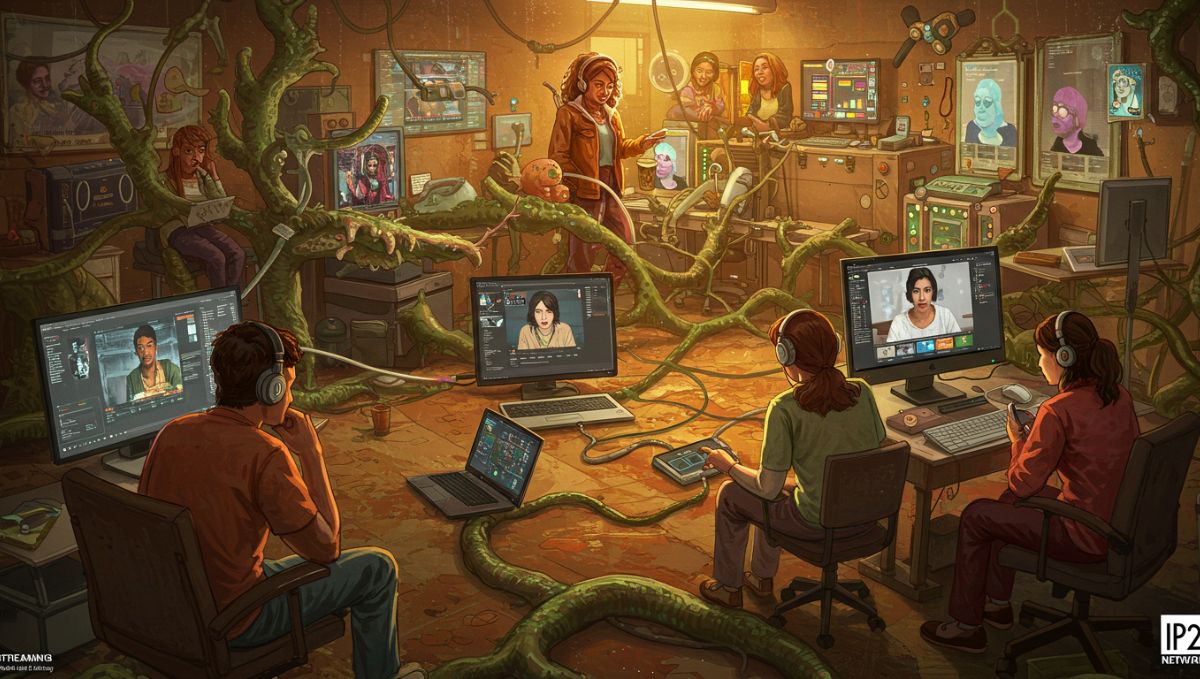The internet has transformed how we consume entertainment, and few genres illustrate this shift more vividly than IRL (In Real Life) streaming. Among the many communities that have emerged, the IP2 Network stands out—both for its massive influence and its polarizing reputation. Known for hosting uncensored, unpredictable, and often controversial IRL streamers, IP2 has become a hub for raw, real-time content that blurs the lines between performance and reality.
But what exactly is the IP2 Network, and why does it spark so much debate? In this article, we explore the origin, purpose, streamers, controversies, and broader implications of IP2 in the digital content world.
What Is the IP2 Network?
IP2 (Ice Poseidon 2) Network is an unofficial online directory that lists live IRL streamers, primarily on platforms like YouTube, Twitch (less often now), and Kick. The network originated from the community built around Ice Poseidon (Paul Denino)—one of the most famous early IRL streamers who gained notoriety for broadcasting his real-life interactions and chaotic lifestyle.
Key Characteristics:
-
Tracks and lists live IRL streamers in real-time
-
Unfiltered, community-driven directory
-
Content includes travel, parties, protests, pranks, and street encounters
-
Known for edgy, sometimes controversial or borderline TOS content
-
No official affiliation with streaming platforms like Twitch or YouTube
While the IP2 Network itself is not a platform that hosts streams, it acts as a central hub for linking to current live broadcasts from creators associated with its ecosystem.
Origins: The Ice Poseidon Influence
The term IP2 is derived from Ice Poseidon’s name. Once a top IRL content creator on Twitch, Ice Poseidon helped pioneer a genre where creators live-stream every aspect of their day—from mundane tasks to dangerous and provocative stunts.
After facing repeated bans and platform issues, Ice Poseidon’s community fragmented. In response, users created IP2 as a place to keep track of his network and similar streamers continuing the IRL format—without censorship or moderation. Over time, it evolved into a larger, crowd-maintained directory with a life of its own.
What Kind of Content Is on the IP2 Network?
Streamers on the IP2 Network produce IRL content, which means everything is broadcast in real-time, in real locations, with real people. The genre thrives on unpredictability and spontaneity—but that can also come at a cost.
Common themes include:
-
Street interviews and interactions
-
Public pranks or stunts
-
Nightlife and party streams
-
Travel vlogs with an edgy twist
-
Controversial debates or social experiments
-
Homeless outreach or exploitation (often criticized)
This raw and often uncensored content attracts a niche audience looking for realness that traditional influencers and YouTubers don’t provide. But that same appeal also opens the door to problematic behavior.
Controversies and Criticism
The IP2 Network is no stranger to controversy. It thrives on it. Many of the streamers listed have been banned from mainstream platforms, accused of TOS violations, or involved in scandals related to harassment, drug use, or violence.
Common Criticisms:
-
Toxic community culture: IP2’s user base is known for trolling, doxxing, and instigating chaos.
-
Harassment and exploitation: Some streamers have been accused of targeting vulnerable people or encouraging unsafe situations.
-
Lack of moderation: Because IP2 is community-run, there’s minimal oversight, which can lead to unethical content being promoted.
-
Ban evasion and platform abuse: Streamers banned from Twitch or YouTube often find new ways to return through IP2’s spotlight.
Despite these issues, IP2 continues to attract viewers who are tired of polished, sanitized content and crave something more “real.”
Popular Streamers Affiliated with IP2
Several streamers have passed through the IP2 ecosystem—some gaining infamy, others building cult-like followings. While not officially affiliated, IP2 often highlights their live links and archives.
Notable names include:
-
Chicken Andy
-
Blade
-
Burger Planet
-
Attila
-
Lulz
-
EBZ
-
Salmon Andy
-
Ice Poseidon (occasionally appears)
These streamers vary in content and style, but most share a dedication to staying live, interacting with chat, and embracing the unexpected—often no matter the consequence.
How the IP2 Network Works
IP2 doesn’t function like YouTube or Twitch. It’s a directory or aggregator, listing and updating streamer links in real time. The site is updated by community members or bots that detect when a streamer goes live.
Features:
-
Live streamer list: Shows who is currently live and links to their streams.
-
Forums or chatboards: Where users discuss streamers, post memes, or stir drama.
-
Clips/Archives: Some versions of the IP2 site feature clips or links to notable moments.
-
Rating or interaction metrics: Viewers can upvote, downvote, or flag streamers.
Because it operates independently, it doesn’t have to follow platform-specific content rules—giving streamers freedom, but also removing filters that might protect against abuse.
Risks and Viewer Discretion
While IRL streaming is entertaining, the IP2 Network’s lack of regulation can lead to harmful situations, both for streamers and viewers. Content may include:
-
Violence or self-harm
-
Drug or alcohol abuse
-
Offensive language or slurs
-
Harassment of passersby
-
Doxxing or personal information leaks
Viewers should use caution and understand that IP2 is NSFW, frequently non-compliant with major platform terms, and not suitable for minors.
Why People Still Watch IP2 Streamers
Despite the risks, IP2 retains a loyal audience. Why?
Key reasons:
-
Unpredictability: Anything can happen live, and viewers love being part of it.
-
“Reality TV” appeal: It’s real people, raw situations, no scripts.
-
Interactivity: Donors and chat users can influence what streamers do in real time.
-
Underground vibe: Viewers feel part of a niche, uncensored world.
For some, IP2 streamers represent freedom of speech and unfiltered expression. For others, it’s modern-day voyeurism taken to the extreme.
The Future of the IP2 Network
As platforms like YouTube and Twitch crack down on controversial content, IP2-style streaming may move to newer platforms like Kick, Rumble, or even blockchain-based services that promise uncensored broadcasting.
That said, legal pressure, platform bans, and growing public concern over digital ethics may force changes in how networks like IP2 operate. Whether the IP2 Network evolves into something more regulated or remains in the underground remains to be seen.
Conclusion
The IP2 Network exists on the fringe of internet culture—an ever-changing, often chaotic mirror of society’s thirst for raw, real-time drama. It offers a form of entertainment that’s messy, unfiltered, and—for better or worse—deeply human.
Whether you view it as an important counterculture or a dangerous digital playground, IP2 reflects the extremes of online content freedom. And as streaming continues to evolve, so too will the communities, controversies, and conversations that networks like IP2 provoke.

